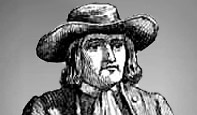Modern science leaves the door wide open for acts which transcend Nature. Sir Dampier Whetham, himself a distinguished physicist who did research on colloids, in his great History of Science records how the early Church learned to hate science and pagan learning, and when it got a bit of power persecuted them. But now that science is in the ascendant, and the Church is in decline, it is science that offers the best hope of rediscovering that mind and faith can influence matter.
However to begin with, the Church was against science. The ability to heal the sick seems to have deserted the Church after about a generation, according to tradition. But this did not lead to any healthy curiosity in the world outside themselves so far as we know. Even in the time of Aurelius, Christians were inward looking, lacking any civic public spirit, and unwilling to do anything to support the Empire, which provided them with a reasonably law-abiding framework in which to live. After Christianity became the official religion, the early church began the process of hastening on the Dark Ages, which it alone was able to survive. All interest in science and useful learning was discouraged; as St. Ambrose said, “To discuss the nature and position of the earth does not help us in our hope for the life to come?” A Christian bishop destroyed part of the library of Alexandria, one of the wonders of the ancient world, because it was pagan learning; and the last classical mathematician was murdered by a Christian mob. Whilst on the one hand Christianity, making a virtue of mercy, will have softened the harshness and cruelty of Rome, and given men something to hope for; whereas the Stoics were really without hope. On the other hand Christianity’s obsession with sin, salvation and damnation, and Christ’s second coming and judgement, replaced the Greek’s bright enthusiasm for life and the stern Roman discipline rooted in family and state. The spirit of the slave was raised up; society was cast down. As Gibbon records, Christianity was on the whole a subversive influence, and a principal factor in the decline and fall of Rome.
And even today, if one goes to church, the same orgy of sin, repentance and forgiveness, reminds one of the 17th century puritans who vied with each other in confessing their sins, many of which they had never committed. No lasting joy or self-confidence could emerge from such a grotto of obsequiousness. And since it is done every week, the conclusion must be that it has been in vain, since the condition this week is the same as last, if not worse. The unspoken assumption is that to take part in the secular world is evil, so that the vast majority of the congregation are forced to commit sin every day of the week; but the trouble is, that this assumes that Jesus was steeped in sin every day he worked in the carpenter’s shop in Nazareth, which is not quite what people want to believe. The irony is that this incredible search for sin in every act and motive keeps clergy and laity alike trapped in a matrix of evil. It incidentally safeguards the clergy’s jobs, by giving them the appearance of authority; it keeps the laity apparently in subjection by the need for forgiveness. But few seriously believe in it; and it disregards entirely that it disarms the laity in the face of the enemy – evil; and disables them from being effective in the secular world. No-one in this claustrophobic fellowship could conceivably work a “miracle” of healing; and that means that the clergy have to neglect their primary duty to heal the sick in body and mind. But that does not prevent the sale of indulgences; the issuing of blank cheques to heaven, unsupported by capital assets in the form of acts which transcend Nature, which would carry the hallmark of authority.
Now that things have come in full circle, we find that Science is God’s gift to man, just as Jesus was. Science deals only in probabilities, not with certainties; though Whitehead and Bertrand Russell in their Principles of Mathematics sought to find in parts of mathematics, notably in the theory of numbers, certain sure truths which did not depend on experience.
